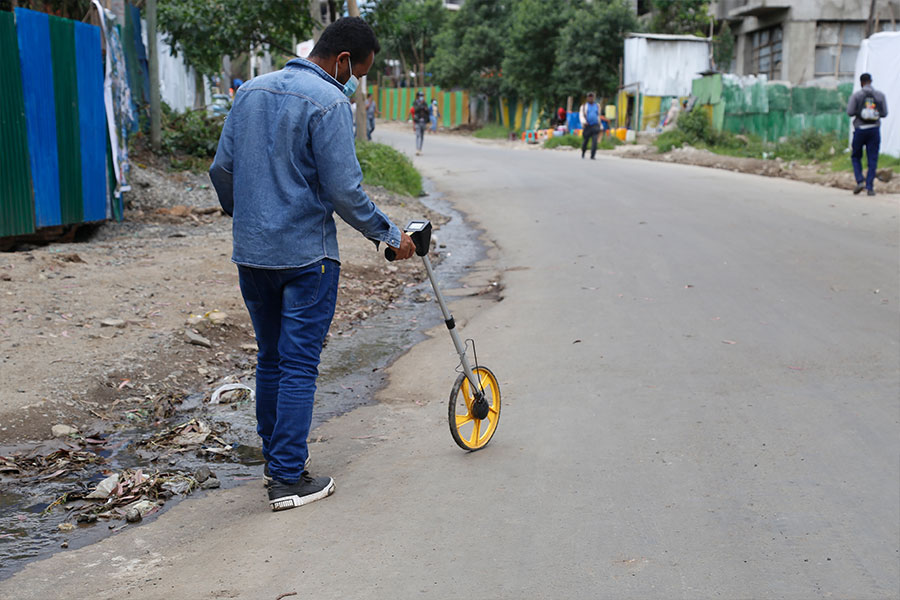
Viewpoints | May 15,2021
Aug 31 , 2019
By Tibebu Bekele
In February 2013, blaring headlines proclaimed “Ethiopia launches Africa’s first unified utility billing system”. It was an innovative Public Private Partnership (PPP) project that was supposed to change the hitherto cumbersome process of residents having to pay utility bills in at least three different offices each month. Electricity, water and telephone bills all had to be paid to different government utility companies on different days of the month. It was a nightmare to millions of Addis residents. This was now going to be simplified into a one-stop activity. No wonder everybody was giddy with excitement.
The project was successful overcoming its teething problems at the start. It served the city dwellers well. It even added traffic violation payments into the mix. The long lines disappeared. No middle men were necessary to handle traffic violation payments anymore. Technology solving a long-standing problem, a progressive government providing a digital solution to its service delivery problem. Amen.
Fast forward six years. The lines are back. People are now having to line up at 5am to pay electric bills. Why? Because the government decided to take back that service. That is why.
They feel they now have the capacity to deliver this service. They apparently do not. Why else would people line up in the chilly Addis morning otherwise. The government says they are giving this service to the Commercial Bank of Ethiopia. I guess the irony is lost on them. That is a dinosaur of a bank, both in its age and size. Its customer service follows its nature - archaic and slow. They could not have picked a worse institution to handle a technology-based service.
Now, the more pertinent question is why did they have to fix a system that was not broken. It is not like they have a shortage of things that are broken. The electric utility is so broken, it was rationing power. The bill collection that was outsourced was not the problem. The same goes for the other giant government companies. Leaving what is working alone for now and focusing their attention on what is truly broken is the logical step. But I guess governments are not known for doing what is logical. They are better at doing what is whimsical.
Policy decisions seem to be made quite quickly, almost arbitrarily, and then reversed just as suddenly. It would help greatly to start by identifying real problems. The problem identification does not seem to include the people that are affected. People know what is making their lives difficult. They will tell anyone that asks what they would like to see fixed. Concentrating limited public resources in solving problems that are actually identified by citizens affected by them will help the government in so many ways. It reduces public discontent. It makes for efficient budget utilisation. Such projects have better sustainability as they address the real felt needs of the community.
The other neglect often seen is the lack of wide dialogue in exploring policy alternatives. Even in the rare cases where problem identification is completed correctly, very rarely will one see a proper dialogue that is inclusive of all stakeholders. A select committee in some government ministry backroom will finish up all the work and organise a half day “consultative meeting”. That is a public relations gimmick, not dialogue. Sure, a real consultative process is expensive and it takes time. But the alternative is costlier.
The answer to all this is putting the average citizen at the centre of the policy making process, both in identifying what to fix and how to fix it. That will save the government from trying to reinvent the wheel.
PUBLISHED ON
Aug 31,2019 [ VOL
20 , NO
1009]


Viewpoints | May 15,2021

Agenda | Sep 23,2023

Covid-19 | Apr 04,2020

Radar | Oct 22,2022

Editorial | Jun 04,2022

Editorial | Jun 04,2022

Radar |

In-Picture | Apr 27,2025

Life Matters | Jun 22,2024

Radar | Oct 09,2021

Photo Gallery | 176983 Views | May 06,2019

Photo Gallery | 167199 Views | Apr 26,2019

Photo Gallery | 157783 Views | Oct 06,2021

My Opinion | 136945 Views | Aug 14,2021

Dec 22 , 2024 . By TIZITA SHEWAFERAW
Charged with transforming colossal state-owned enterprises into modern and competitiv...

Aug 18 , 2024 . By AKSAH ITALO
Although predictable Yonas Zerihun's job in the ride-hailing service is not immune to...

Jul 28 , 2024 . By TIZITA SHEWAFERAW
Unhabitual, perhaps too many, Samuel Gebreyohannes, 38, used to occasionally enjoy a couple of beers at breakfast. However, he recently swit...

Jul 13 , 2024 . By AKSAH ITALO
Investors who rely on tractors, trucks, and field vehicles for commuting, transporting commodities, and f...

Oct 18 , 2025
The political establishment, notably the ruling party and its top brass, has become p...

Oct 11 , 2025
Ladislas Farago, a roving Associated Press (AP) correspondent, arrived in Ethiopia in...

Oct 4 , 2025
Eyob Tekalegn (PhD) had been in the Governor's chair for only weeks when, on Septembe...

Sep 27 , 2025
Four years into an experiment with “shock therapy” in education, the national moo...

Oct 18 , 2025 . By NAHOM AYELE
In a sweeping reform that upends nearly a decade of uniform health insurance contribu...

A bill that could transform the nutritional state sits in a limbo, even as the countr...

Oct 18 , 2025 . By SURAFEL MULUGETA
A long-planned directive to curb carbon emissions from fossil-fuel-powered vehicles h...

Oct 18 , 2025 . By BEZAWIT HULUAGER
Transaction advisors working with companies that hold over a quarter of a billion Bir...